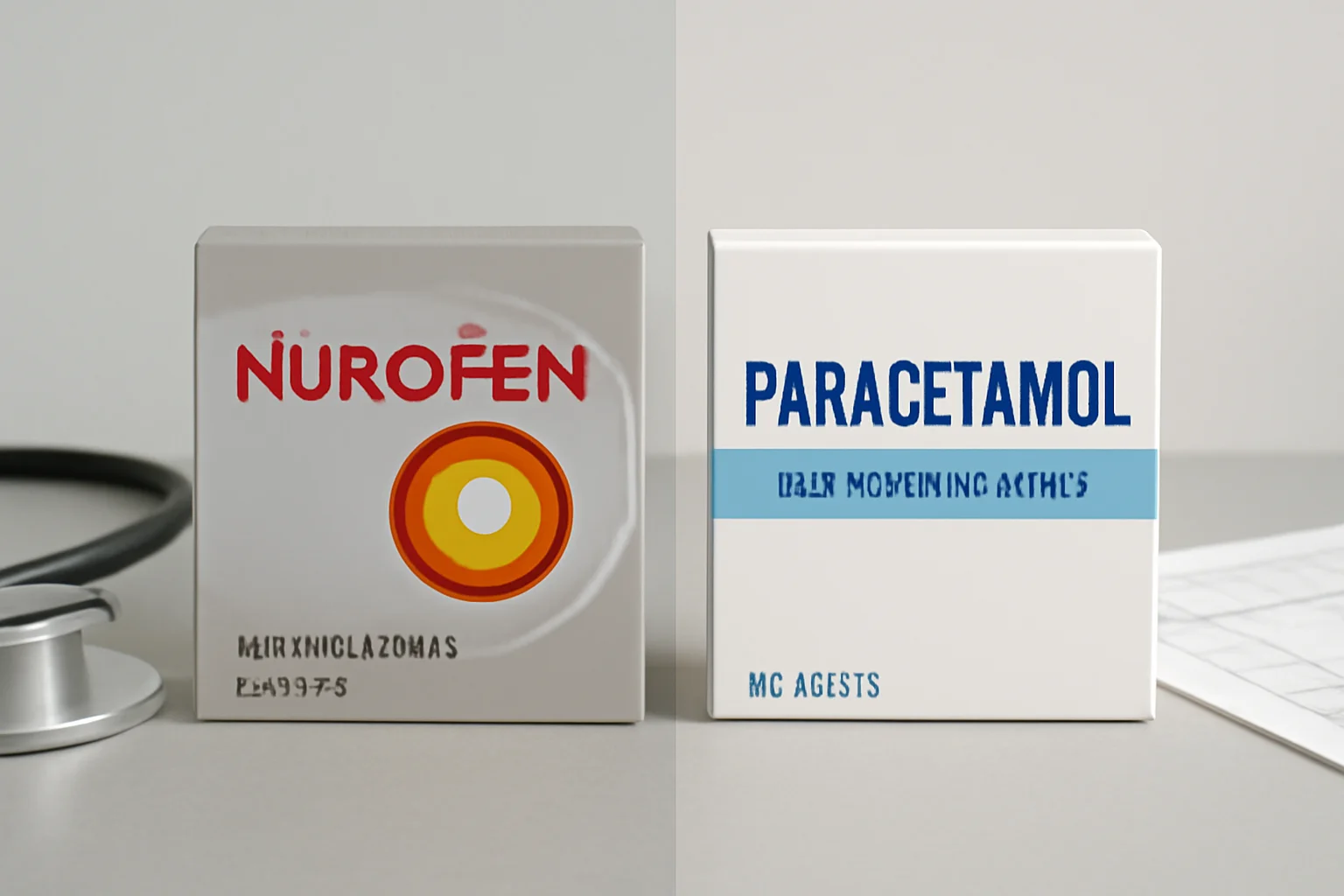
Nurofen or paracetamol: Which is the more effective pain reliever?
The world of pain relievers offers a variety of options for users. Two popular medications, Nurofen and Paracetamol, are often discussed when it comes to pain relief. Both are available at pharmacies, and each has its own characteristics, advantages, and disadvantages. Users often seek answers about which is the better choice when dealing with pain or fever.
Nurofen: Mechanism of Action and Applications
Nurofen contains the active ingredient ibuprofen, which belongs to the group of non-steroidal anti-inflammatory drugs (NSAIDs). The mechanism of action of ibuprofen is that it inhibits the activity of cyclooxygenase (COX) enzymes, which play a key role in the production of prostaglandins. Prostaglandins are responsible for the sensation of pain and inflammation, so by reducing them, the perception of pain is also alleviated.
Nurofen is particularly effective for headaches, muscle pain, arthritis, and menstrual pain. The medication is rapidly absorbed in the body, so its effects are usually felt relatively quickly, typically within 30-60 minutes. Due to its anti-inflammatory properties, many choose this medication when they want to reduce not only pain but also inflammation.
It is important to mention that when using Nurofen, one must consider the possible side effects as well. The most common side effects include stomach pain, nausea, and diarrhea. Long-term or high-dose use can lead to gastrointestinal issues, such as stomach ulcers. Additionally, Nurofen is not recommended for certain health conditions, such as kidney disease or heart problems.
Before using Nurofen, it is always advisable to consult a doctor, especially if someone is already taking other medications or has chronic illnesses. Proper dosing and adherence to usage instructions are essential for safe and effective pain management.
Paracetamol: Effects and Areas of Application
Paracetamol, also known as acetaminophen, is a widely used pain reliever and fever reducer. Its mechanism of action is not fully understood, but it is believed to inhibit pain perception through its effects on the central nervous system. Paracetamol does not have anti-inflammatory properties, so it is primarily used to reduce pain and fever.
Paracetamol can be an ideal choice for fever and mild to moderate pain, such as headaches, toothaches, or muscle pain. Its beneficial effects are felt quickly, and the medication is generally well tolerated, making it a common choice for everyday pain relief.
Although Paracetamol is generally considered safe, it is important to know that overdose can cause severe liver damage. Therefore, it is crucial to adhere to the recommended dosage and not exceed the maximum daily limit. It is always advisable to seek medical advice before taking Paracetamol, especially if someone is already taking other medications or has chronic illnesses.
Paracetamol is also a popular choice among pregnant women and breastfeeding mothers, as it generally poses less risk to the developing fetus or infant. However, in these cases, proper medical supervision is still important.
Which Medication is the Right Choice?
The choice between Nurofen and Paracetamol depends on many factors. One of the most important considerations is the type and intensity of pain. If it is inflammatory pain, such as arthritis or muscle pain, Nurofen may likely be more effective. On the other hand, if it is merely mild pain or fever, Paracetamol may suffice.
Another important factor is considering the side effects of the medications. Nurofen, being a non-steroidal anti-inflammatory drug, can have various side effects, especially with long-term use. Paracetamol, while generally considered safer, is also not without risks, particularly in cases of overdose.
Individual health status also plays a key role in the decision. For those with heart or kidney disease, Paracetamol is often a safer choice. Additionally, combining medications can be a possible solution, but this should always be done under medical advice.
Overall, Nurofen and Paracetamol can be useful in different situations, and the best choice depends on the specific circumstances.
This article does not constitute medical advice, and it is always advisable to consult a doctor in case of health issues.

